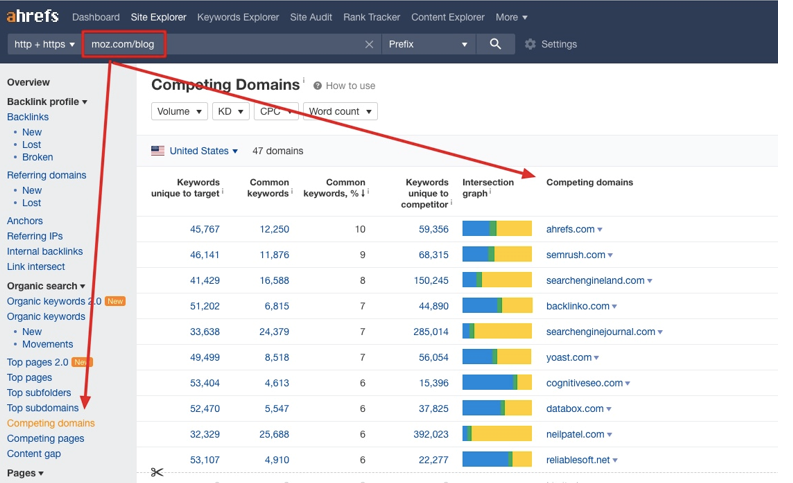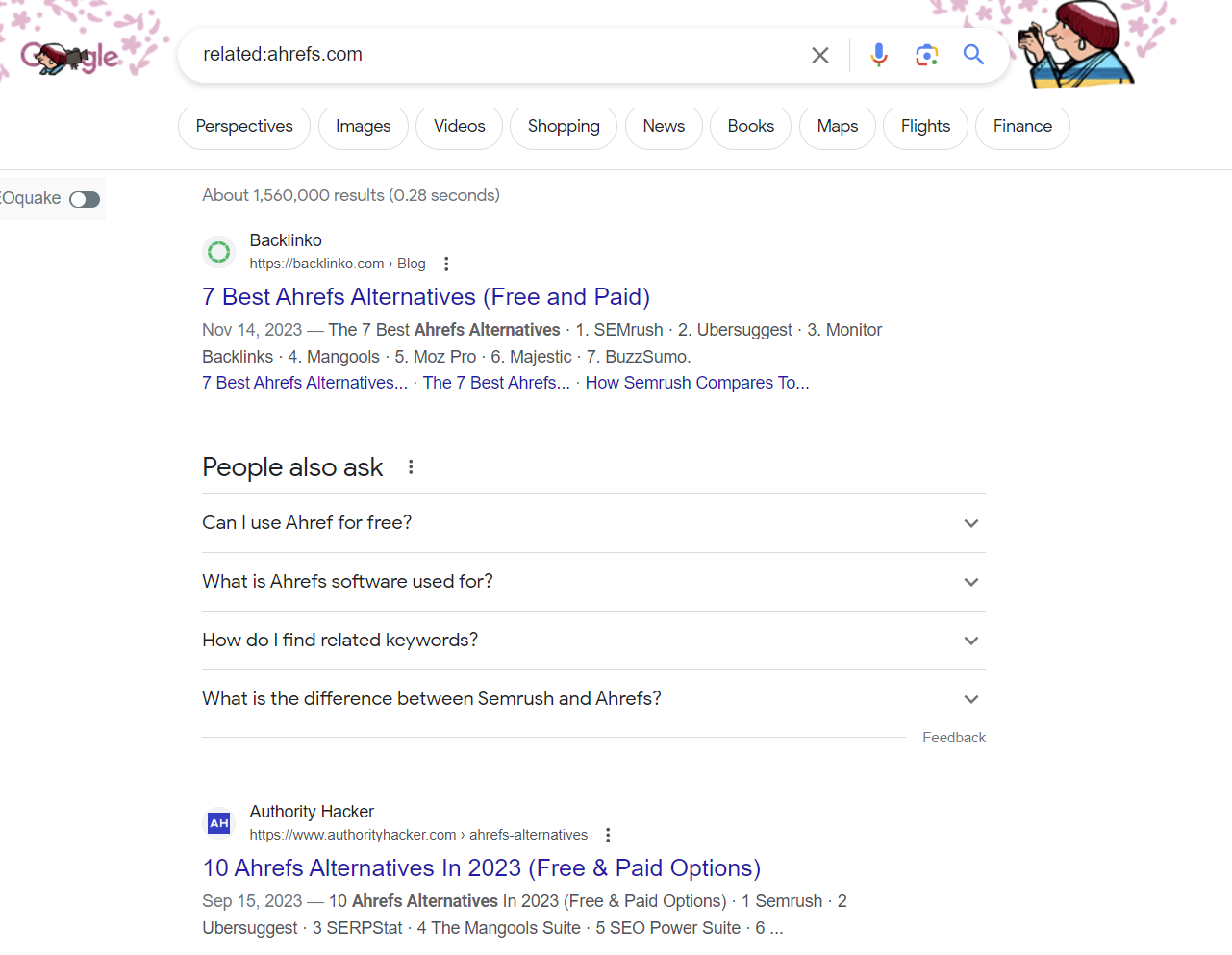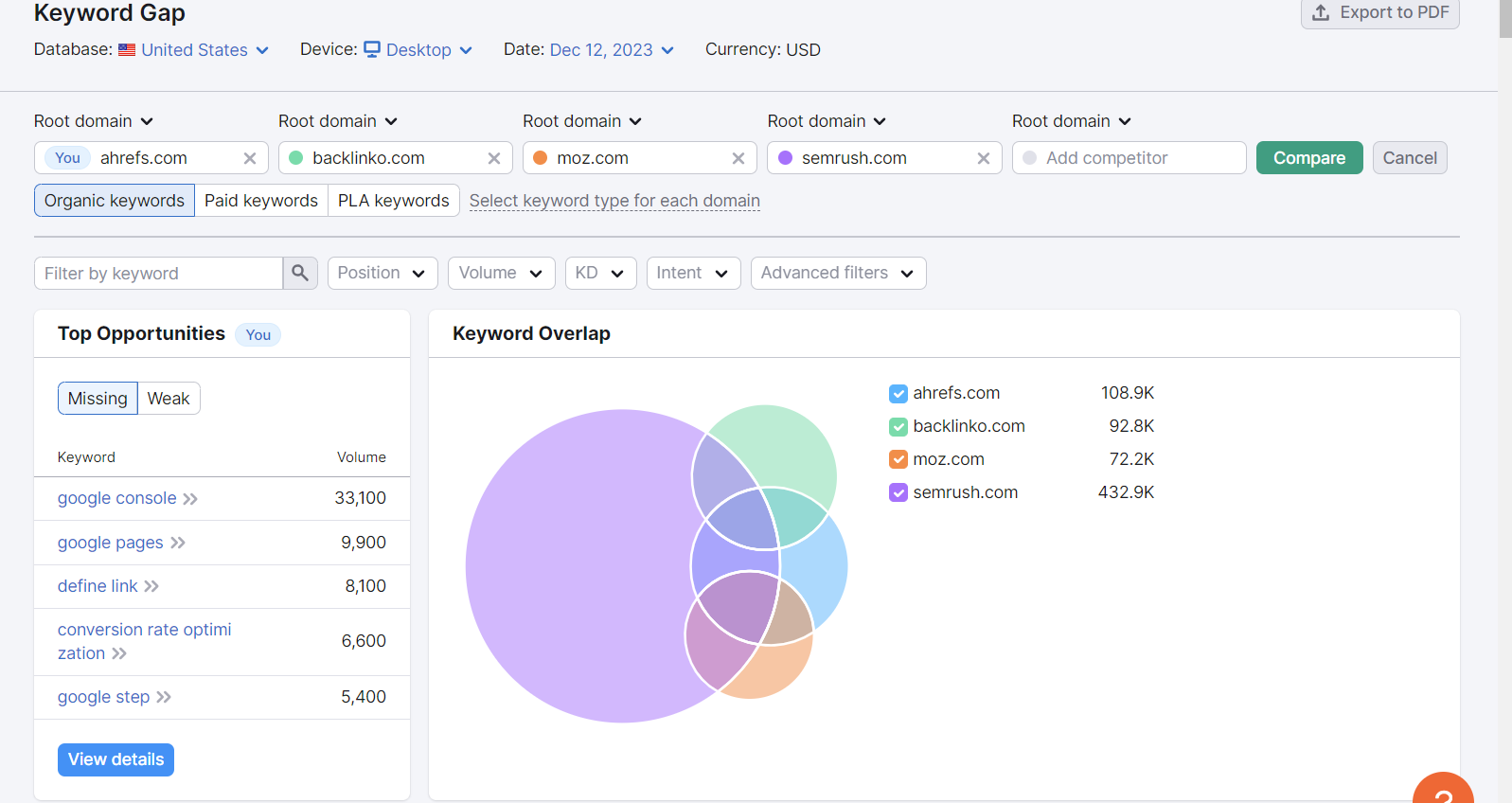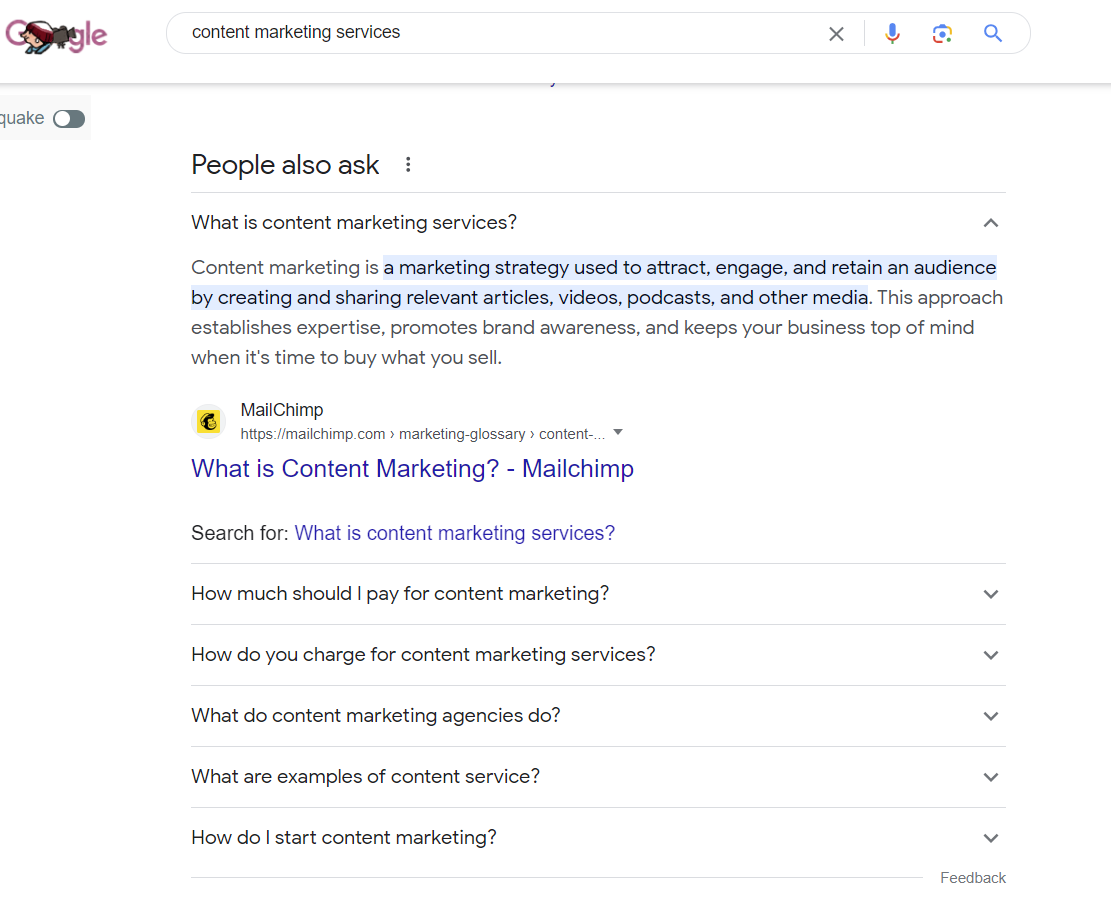You've established your company blog and are eager to attract organic traffic to your website through compelling articles. In the vast online landscape, competition is fierce, particularly when it comes to being a trusted source of information.
For a successful blog, there are various dimensions such as guest posting, creating content personas, content repurposing, and content strategy to bring the desired traffic. However, have you ever considered how you will beat the competition that has already published tens of articles?
Since blogs are considered as one of the most trustworthy sources to gather information, you will probably come across high competition out there trying to provide solutions or guidance for the questions people ask as much as possible. So, how to stand out?
In this blog, we will focus on:
- What are Competitor Keywords?
- What is Competitor Keyword Research?
- How to Conduct Competitor Keyword Research?
- Conclusion
What are Competitor Keywords?
Competitor keywords are a set of keywords with a considerable amount of search volume that your competition strategically targets to get organic visibility and traffic.
Why do you need your competitors’ keywords? There is a simple answer to that.
Instead of looking for traffic opportunities and content ideas and getting lost while spending hours, you can check your competitor’s websites and see what they have been publishing recently.
Thanks to competitor keywords, you can create your content briefs and write more detailed content than your competitors to outrank them. You can also add the intent gap your competitors have not addressed yet and get extra organic traffic.
What is Competitor Keyword Research?
Competitor keyword research is an SEO step of finding and analyzing the keywords your competitors have been targeting.
With this research, you can find organic visibility opportunities and define your organic strategy for more traffic.
To perform effective keyword research, the first thing you need is to know who your competitors are in the online world.
How to Conduct Competitor Keyword Research?
Conducting competitor research is vital as it provides invaluable insights into market trends, consumer behavior, and industry benchmarks. Armed with this knowledge, businesses can fine-tune their strategies, differentiate their offerings, and stay ahead of the competition.
There are many ways to do that and today we will cover four actionable steps that you can easily apply in your keyword optimization.
1- Find your competitors
Understanding who your competitors are is crucial. Unlike traditional offline marketing, online dynamics change rapidly, necessitating a swift and strategic approach.
Utilize SEO tools like Semrush and Ahrefs to conduct competitor analyses, providing insights into organic traffic, keywords, and potential rivals.

For those without dedicated SEO tools, a simple Google search using "related:yourdomain" can help identify similar websites. Even if you're just starting, having one or two results to explore is a valuable starting point.

2- Find Competitor’s Keywords by Using Google Search Operators
Discovering your competition's indexed content on Google is a crucial step in strategizing your online presence.
To compile a comprehensive list of their material, employ the "site:domain.com" operator.

For a more targeted approach, pair this with the "intitle:" Search Operator to identify pages featuring specific keywords in their titles.
3- Conduct Competitive Keyword Research
Now that you have found your competitors and understood them well by looking into the keywords they use to drive traffic, it is time to do actual research for your content to win over the competition. There are a couple of ways you can make this happen. Let us check below;
a) Conduct Competitive Keyword Research with Screaming Frog
Another effective approach involves leveraging the Screaming Frog SEO Spider as an alternative to Google Search Operators. By crawling your competitor's website, excluding non-essential URL paths such as images, CSS, and JS, you can compile a detailed list.
Upon completion of the crawl, you'll possess a comprehensive inventory of your competition's content. If you have specific keywords in mind, employ the provided regex code to filter URLs, H1 titles, or meta titles containing those keywords.
(keyword)(.*\1+)

b) Conduct Content Gap Analysis with Semrush or Ahrefs
Conducting a thorough Content Gap Analysis is an essential strategy to enhance your online visibility and stay competitive in the digital landscape. Employing advanced tools such as Semrush's Keyword Gap or Ahrefs' Content Gap can provide invaluable insights into the keywords where your competitors excel but your website currently does not.

By leveraging these tools, you can precisely identify the keywords your competitors are ranking for, but your website is missing from its current optimization. This process unveils strategic opportunities for improvement and allows you to tailor your content creation efforts to fill these gaps effectively.
The significance of this analysis lies in its ability to unveil untapped potential within your industry or niche. It not only helps you understand the competitive landscape but also provides a roadmap for optimizing your content strategy. Armed with this information, you can refine your SEO approach, ensuring that your website becomes a more authoritative and comprehensive source within your field.
This approach goes beyond merely identifying gaps in keyword rankings; it lays the foundation for a proactive content strategy. By understanding what your competitors are doing well and where your website can improve, you empower yourself to craft targeted and relevant content that addresses the needs and interests of your audience.
Content Gap Analysis serves as a strategic compass, guiding your content creation efforts toward areas that can yield maximum impact. As you identify and capitalize on these opportunities, you not only enhance your website's visibility but also position yourself as a key player in your industry, ultimately driving sustained organic traffic and engagement.
c) Use "People Also Ask" Questions in Google
Beyond conventional keyword research tools, the PAA section introduces you to queries and phrases that might not appear in typical keyword lists. Use these questions to expand your keyword horizon and capture the full spectrum of user queries relevant to your niche.
Conducting a competitive analysis within the PAA section unveils the content strategies of your competitors. Identify the questions they're addressing and, more importantly, spot the gaps. This knowledge empowers you to create content that not only competes but surpasses what's currently available.

"People Also Ask" section isn't just a cluster of questions; it's a dynamic tool for honing your competitive edge. By integrating these insights into your keyword research and content strategy, you embark on a journey to not only meet but exceed user expectations, ultimately propelling your online presence to new heights. Explore, adapt, and watch your digital strategy flourish.
4- Determine User Intent and Tailor Your Content
Once you complete your keyword research and analyze your competitors’ content, you need to define your content strategy. At this point, understanding user intent is crucial. Ask yourself four key questions posed by Brendon Hufford:
- Are they searching for a solution to a problem?
- Does the search phrasing suggest a possible solution?
- Does the search phrasing include your product?
- Do they already know your solution is the best for them?
Utilize these insights to create a targeted content outline that resonates with your audience.
Conclusion
In the jungle of online content, strategic competitor keyword analysis is key to standing out. By understanding the keywords your competitors are targeting and analyzing their performance, you gain valuable insights to refine your own keyword strategy, improve search engine visibility, and attract targeted traffic to your website. Embracing competitive keyword research empowers you to stay competitive in the digital landscape, driving higher rankings, increased organic traffic, and ultimately, greater success in achieving your marketing objectives.
If you need help with comprehensive competitor keyword research, NMQ Digital is here with its SEO Services.





